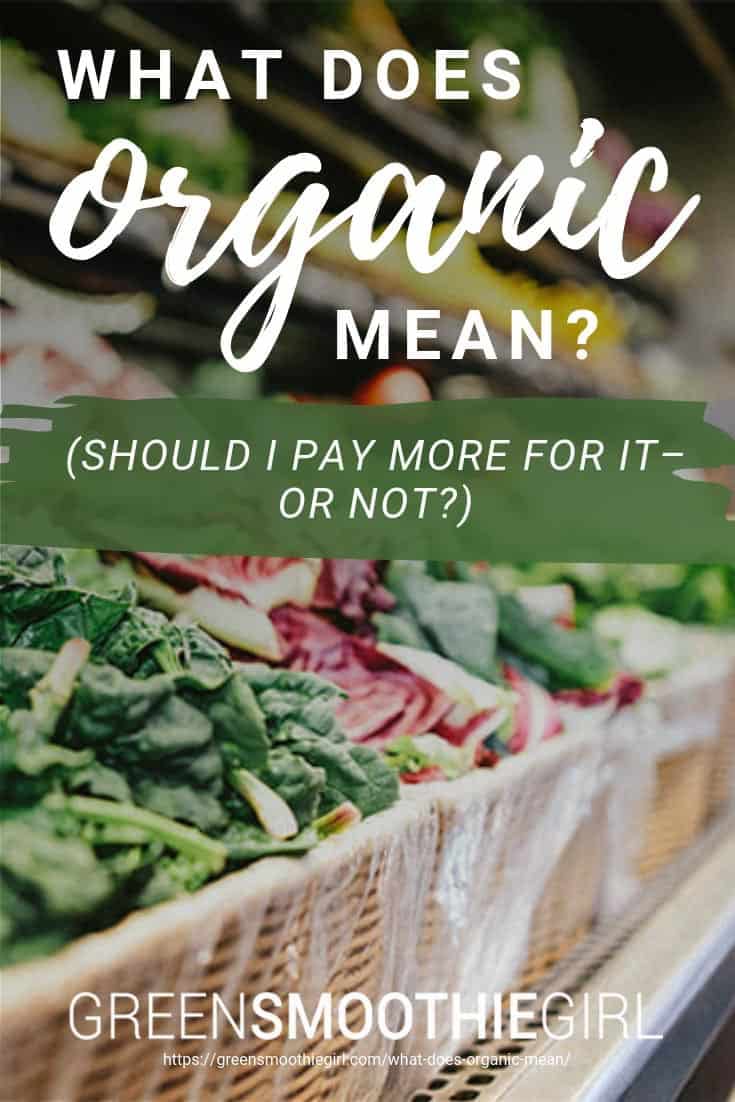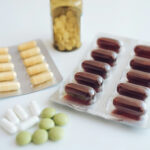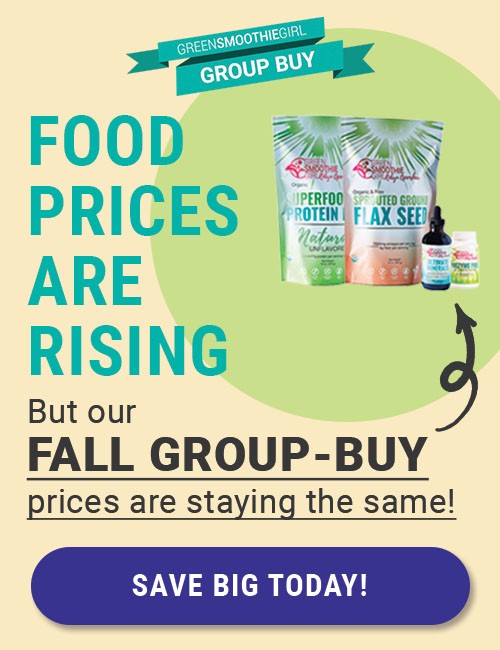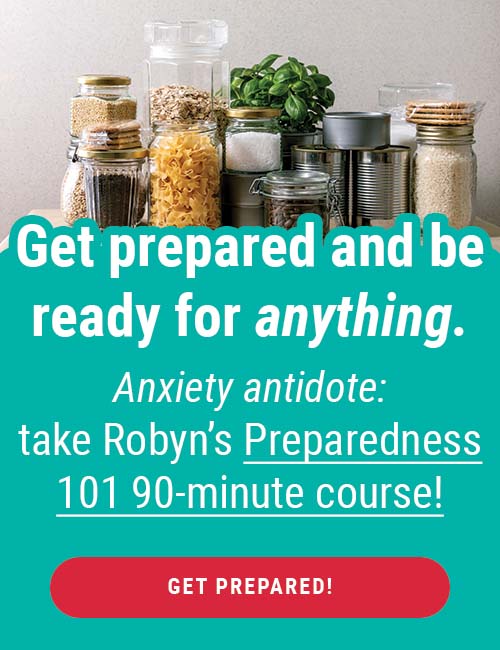What Does ORGANIC Mean? Should I Pay More For It, Or Not?
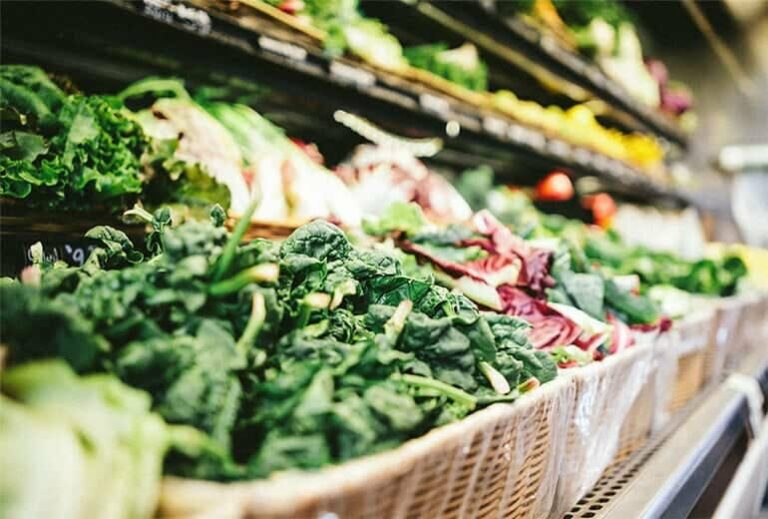
Dear GreenSmoothieGirl:
This is a topic I have wondered about for years. I don’t think buying organic foods1 is worth it, because there’s no way to know if it is actually organic. My uncle is a farmer and does not grow organic crops. However, he has friends who are “certified organic” farmers and they use the same harmful pesticides he does. All they had to do to get the organic sticker is pay a fee. What are your thoughts about this?
–Mikaela
In this post:
- What Does “Organic” Mean?
- Does “Organic” Really Mean “Chemical Free”?
- Is Buying Organic Food Worth It?
- So, Has Government Helped or Hurt Organics?
- The Impact of the Organics Movement
- Are Organic Foods More Nutritious?
- The Clean 15: Non-Organic Foods You Can Trust
- The Dirty Dozen: Foods You Should ALWAYS Buy Organic
- How You Can Cut Costs of Organic Foods
- Conclusions About Organics
More people than ever are buying organic produce. In a survey of 1,050 Americans, 85% were worried about pesticide levels in their food,2 despite the fact that these organic options can cost 50% more than their non-organic counterparts.2
But like Mikaela, many of my readers wonder whether or not a few decades of government intervention has made the term “organic” all but meaningless.
Should you be suspicious if a product label says just “organic” instead of “certified organic”? Which foods are worth the extra cost for organic, and which aren’t? And how can you save money on organics to protect your endocrine system3 — and your wallet?
Buckle up!
What Does “Organic” Mean?
Government regulations have certainly bogged down what “organic” really means. A recent survey confirmed that there’s a lot of confusion around food labels,4 especially when it comes to terms like “grass-fed,” “nitrate-free” and “organic.” Most people think that any time they see the word “organic,” it means “free of all pesticides, herbicides, and other chemicals,” that’s not quite the case.
It can be helpful to understand that the legal definition of “organic,” is governed by the USDA,5 and has four tiers:
Tier 1: 100% Organic
“100% Organic” means that every ingredient is Certified Organic, all facilities involved are Certified Organic, and the product may, or may not, have the USDA Organic seal.
Tier 2: USDA Organic
“USDA Organic” means that 95% or more of the ingredients are Certified Organic, non-GMO, and have obtained the USDA certification. The remaining 5% of ingredients must come from an approved list. All farms, facilities, and handlers must have the USDA certification.
Tier 3: Organic
“Organic” means that 95% or more of the ingredients are certified for no artificial food additives, irradiation, GMOs, synthetic pesticides, herbicides, or fertilizers. Animals must be fed organic feed, with no hormones or antibiotics. The remaining 5% of ingredients must come from the approved list, and all facilities must be inspected by the USDA.
Tier 4: Made With Organic Ingredients
“Made With Organic Ingredients” means that 70% or more of the ingredients must be Certified Organic. The product cannot use the USDA seal, and cannot represent that the finished product is Organic.
You may wonder why manufacturers are allowed to use up to 5% non-organic ingredients for USDA organic produce. Some ingredients are simply not available organically, although what’s exciting is that more and more options are becoming available, as demand increases for organic growing and manufacturing.
Does “Organic” Really Mean “Chemical Free”?
What these four tiers mean, effectively, is that the word “organic” doesn’t necessarily mean “chemical free.” Unfortunately, this is par for the course when it comes to food labels. For instance, “humanely-raised” doesn’t automatically mean that an animal's living conditions are inspected 6 or that it has outdoor access (the USDA allows each company to define the claim, so meanings vary).
Let’s get into the nitty gritty about exactly what’s going on with the chemicals (or lack thereof) in organic food:
Can Someone Just Buy the “Certified Organic” Label?
What Mikaela’s uncle told her, about simply sliding some dollars to a government entity to get certified organic simply isn’t true.
The process for becoming certified organic involves submitting your product to testing and a bunch of paperwork. And until you do (and until you pass) you cannot put the organic certification on your label.
Trying to pull a “fast one,” and skipping the certifications, would mean no co-packer (someone who packages product for a client) would work with you again, effectively putting you out of business. That means only the biggest companies who own their own packing facilities could possibly get away with this level of fraud.
And these companies have the most to lose, because if they are caught, the consequences could actually bankrupt them. So, the fact remains (thankfully!) that Certified Organic does mean something very important, for the consumer.
How the USDA Decides Who Gets a “Certified Organic” Sticker
Organic farmers are required to meet stringent standards set by the USDA’s National Organic Program, which regulates the pesticides and chemicals that can be used in organic produce as well as the harvest and handling of organic produce.
An organic farmer goes through a lengthy certification process7 (including an application process, a site inspection by a certified organics agent, and fees somewhere in the neighborhood of $750) to prove that he or she is meeting the standards for organic food.
These standards include not spraying specific pesticides and herbicides known to be most toxic, including glyphosate. In many cases, the qualification process requires three years of farming on land free of synthetic fertilizers and pesticides before certification can be given.
Which Chemicals Can Organic Farmers Use?
It’s important to remember that organic farmers face the same challenges that conventional farmers face, namely insects and weeds. In order to combat these real issues, the National Organics Program allows about 25 synthetic pesticides8 in addition to the natural-based pesticides such as neem oil and diatomaceous earth.
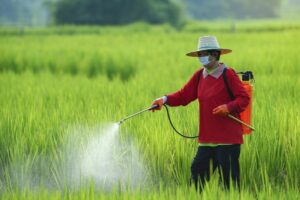
Organic farming results in less pesticide residue on the food it produces
It can be helpful to remember that this tiny number stands in stark contrast to the 900 synthetic pesticides approved for conventional farmers. In addition, these synthetic chemicals can only be used once the farmer has attempted to control the problem by natural means such as crop rotation or cover crops.
A few of the synthetic substances allowed8 for use in organic farming include hydrogen peroxide, lime sulfur, insecticidal soaps, Vitamin D3, and humic acids. As previously noted, organic farmers cannot use the majority of synthetic pesticides used by conventional farmers. This includes one of the most widely used herbicides–glyphosate–which you may know as Roundup.
So, Why Are Dangerous Chemicals STILL Found in Organics?
It’s true: Some studies show that glyphosate and other chemicals are found in organic foods. But why?
First of all, virtually all studies have shown that organics have far fewer synthetic chemicals than conventional produce and products.
Second, it’s critical to understand that growers can do absolutely everything right, and testing may still show chemicals in their product. Why? Dirty groundwater and overspraying from non-organic farms nearby can contaminate their product. After all, glyphosate is usually applied in larger commercial ventures, by low-flying small aircraft.
The government cannot easily penalize an organic grower against what his neighbor may be doing. After all, rain and irrigation takes those chemicals into the groundwater, where the water flows far and wide through many farms. Those chemicals also end up in the atmosphere again eventually, and then in the rain.
Is Buying Organic Food Worth It?
So, is organic food really worth the cost--especially when you factor in the price tag that’s sometimes 50% higher than non-organic produce?
Consider this fact: According to the CDC, the average adult has 29 different types of pesticides9 in their body at any given moment. And the average newborn baby has over 230 known carcinogenic chemicals in her umbilical cord.10
On the other hand, in a study conducted at Boise State University’s School of Allied Health Sciences,11 4,500 people were analyzed for exposure to organophosphates (OP), a common insecticide used in conventional farming. Results showed that those who ate organic produce had significantly lower OP pesticides in their system.
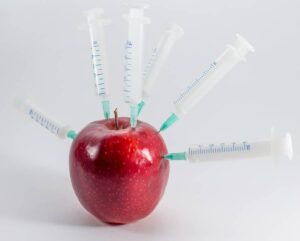
Organophosphates can harm the brains and nervous systems of animals and humans.
It’s devastating to think about how many chemicals each of us is exposed to throughout our lives — especially when many of those pesticides come from healthy foods like fruits and vegetables that should be nourishing our bodies. And what’s even scarier is that many of these endocrine-disrupting chemicals from pesticides build up in the body over time,3 leading to damage that may only become apparent years down the road.
[Related: Endocrine Disruptors: 14 Common Chemicals That Affect Your Hormones]
So back to the question: Are organics worth it? Absolutely, especially for foods that are heavily sprayed or readily absorb pesticides (more on the “Clean 14” and “Dirty Dozen” below!).
So, Has Government Helped or Hurt Organics?
If you know me, you know that I’m a frequent critic of government regulation and standards. What follows isn’t a defense of government, so much as putting all the data in context:
Once the FDA approves a new chemical for use in our environment, it’s very difficult to get it out of our air, water, and food. Essentially, a new chemical is “innocent until proven guilty,” which is why our government has now approved over 80,000 chemicals for use in our air, water, and food. A food-additive or herbicide chemical is typically not “proven guilty” until many years of use, and until the research that may emerge eventually proves its negative effect on our health.
Despite its problems, and despite this broken of system of “innocent until proven guilty” when it comes to chemicals, I still believe that most employees and groups inside the regulatory agencies want to protect the American public.
And even with government agencies tasked with policing tens of thousands of brands, and millions of products, with overworked departments unable to keep up, I still believe that the USDA Organic certification is beneficial, and even critically important the consumers.
Why? In large part, because of accountability. If a company that goes to the trouble of certifying is now on the radar of these certifying organizations. And if that company fails testing, which happens often, they risk financial catastrophe and public outcry. Testing failure can also mean that a company has to undergo an FDA recall, which is painful, time-consuming, and expensive.
The Impact of the Organics Movement
Something else to consider is that the decision of whether or not to buy organics isn’t just about one person’s individual health— although that’s obviously incredibly important.
Society’s preference for organic food has shifted the needle for everybody — not just the wealthy who can afford to buy 100% organic. Even mainstream growers and producers are scrambling to use fewer pesticides, treat their animals with more dignity, and generally create healthier food. Yes, in some cases it might just be to hang onto their market share by earning that “organic” sticker, but if it means fewer pesticides and fewer chemicals, that’s good news for us consumers.
[Related: 999 Cheap Plant-Based Meals You Can Make In 15 Minutes]
What does all that mean? It means that even if you can’t buy 100% organic, you’re moving the needle for your personal health--and society’s health!--when you use your dollars to say “no thanks” to pesticides. (You do the same thing when you say no to GMO products,12 by the way!) Someday, I believe the organics movement will eliminate the extreme public health hazard of 500 million tons of Roundup we spray on our crops every year.
By using your grocery budget wisely to “vote” for organics, you are making an impact on the ecosystem, and the future health of your children and grandchildren. You also support farmers who have made the transition to more eco-friendly practices!
Are Organic Foods More Nutritious?
A major British meta-study13 reviewed 343 published papers and concluded that, aside from the issue of whether organics are completely free of chemicals, or not—organic produce is clearly more nutrient dense.
The meta-study concluded that you would have to eat two extra servings of non-organic produce, to equal the nutritional value you get in a day, eating organic produce. And while that’s fantastic news, it’s icing on the cake to the fact that organic produce delivers far fewer toxins, in a world where the human body cannot keep up with the massive chemical input.
The Clean 15: Non-Organic Foods You Can Trust
Each year, the Environmental Working Group (EWG) issues a “Dirty Dozen,” and a “Clean 15.” These lists help you decide which groceries you absolutely insist on buying organic,1 as well as some crops that aren’t usually sprayed, or that have thick outer shells or peels that are removed.
The latest “clean 15”14 that you can generally trust to buy non-organic includes:
- Avocados
- Papayas
- Sweet corn
- Sweet peas
- Asparagus
- Cauliflower
- Pineapple
- Mangos
- Cabbage
- Grapefruit
- Honeydew Melon
- Onion
- Eggplant
- Kiwi
- Broccoli
Other Foods OK To Buy Conventionally
You can also generally trust foods like watermelon, bananas, oranges, lemons, limes, pumpkins, and other foods with thick, non-edible rinds (just take care if you’re using the zest in recipes!).
Quinoa is another staple that doesn’t need to be purchased organic, because its thick coating is almost totally resistant to insects, so growers don’t spray!
The Dirty Dozen: Foods You Should ALWAYS Buy Organic
Did you know that eating a serving of non-organic green beans is 200 times riskier,2 in terms of chemicals you might ingest, than one serving of non-organic broccoli?
The fact is, some crops are more heavily sprayed than others. And even some crops that are less heavily sprayed— but are eaten without being peeled or husked— can pose a significant risk.
This “dirty dozen”15 should ALWAYS be organic—skimp on costs elsewhere if you have to. These crops are heavily sprayed and contaminated:
- Strawberries
- Spinach
- Kale, collard, and mustard greens
- Nectarines
- Apples
- Grapes
- Cherries
- Peaches
- Pears
- Bell and hot peppers
- Tomatoes
More Foods You Should Always Buy Organic
In addition to the dirty dozen, you’re going to want to buy organic when it comes to leafy greens, which are often the target of heavy spraying and synthetic fertilizers.
Coffee makes the list too, as one of the most heavily sprayed crops in the world.
And if you choose to eat dairy, eggs and meat, you should absolutely opt for grass-fed organic. Not only do non-organic eggs have completely unbalanced and disrupted fatty acids, but the amount of antibiotics and steroids that find their way into any source of non-organic animal protein is staggering.
How You Can Cut Costs of Organic Foods
So, for a family on a budget (and that’s most of us), the big question is, “What do I buy organic,1 versus conventional?”
While there’s plenty of negative trends in the modern age, one very encouraging trend is that the cost of organics (especially in big box stores that have adopted a lot of organics) is lower than ever. And while it’s certainly still possible to pay 50% more for organics, it’s easier than ever to find good prices--if you know where to look. Consumers are demanding organics, and companies like Costco and even Walmart have proven their stated objectives to provide more options for their customers.
Keep these tips in mind, to help align your budget with your health goals!
Take a Reminder Card to the Grocery Store
Take this handy free wallet card to the grocery store with you in your pocketbook for a quick reminder while you’re in the produce section and beyond, to help you decide which produce is worth spending extra for the certified organic label, and which you can purchase conventionally grown, without fear.
Prioritize Your Purchases
In general, your priority is to buy organic greens and thin-skinned fruits and vegetables on the “dirty dozen” list. You can find organic berries and greens easily, and for little or no extra cost. Costco in particular has made a committed effort to more organic sourcing, and hundreds of organic products are found in each of their stores.
Shop Around
Remember: While it’s absolutely possible to find organic produce at double or triple the cost of non-organic produce, that’s no longer the standard. Costco and even Walmart now stock numerous organic products and produce at competitive prices, while Whole Foods (the big name we always associate with organics) has steeper prices. Check out your local farmer’s market as well, to see if you can find local organic farmers to support!
Coupon It Up
If you’re into couponing, you can actually find your organic produce for less than you’d pay for non-organics! So if you have the time and the gumption, check out the latest organic coupon sources to save at the grocery store.16
Conclusions About Organics
So, are organics worth it? Absolutely yes. While there’s a lot of confusion about labels and several tiers of organic produce (from 100% certified organic, to simply “certified organic,”) that require different standards of purity, any form of organic produce carries a much lower chemical burden and packs a higher nutritional punch.
By shopping smart, knowing the “clean 15” and the “dirty dozen,” you can improve your individual health and society’s health by voting with your dollars to get pesticides out of our food.
Read next: How To Detox Your Body Quickly, Safely, And Naturally

Disclosure: This post may contain affiliate links that help support the GSG mission without costing you extra. I recommend only companies and products that I use myself.
Resources
- Openshaw, Robyn. “Is Buying Organic Food Always Necessary?” GreenSmoothieGirl.com, March 13, 2017.
- Consumer Reports, “Eat the Peach, Not the Pesticides.” March 19, 2016.
- Openshaw, Robyn. “Endocrine Disruptors: 14 Common Chemicals That Affect Your Hormones.” GreenSmoothieGirl.com, March 12, 2017.
- Consumer Reports, Food Labels Survey, 2016 Nationally-Representative Phone Survey, April 6, 2016.
- Electronic Code of Federal Regulations, Title 7, Subtitle B, Chapter 1, Subchapter M, Part 205. February 19, 2019.
- Consumer Reports, Food Labels Survey, 2016 Nationally-Representative Phone Survey, April 6, 2016.
- Chait, Jennifer. “How to Get USDA Organic Certification,” The Balance, November 15, 2018.
- Electronic Code of Federal Regulations, Title 7, Subtitle B, Chapter 1, Subchapter M, Part 205, Subpart G. February 19, 2019.
- Centers for Disease Control and Prevention, National Report on Human Exposure to Environmental Chemicals. January 2019.
- Goodman, Sara. “Tests Find More Than 200 Chemicals In Newborn Umbilical Cord Blood.” Scientific American, December 2, 2009.
- Boise State University. "Organic food reduces pesticide exposure." ScienceDaily. ScienceDaily, 5 February 2015.
- Openshaw, Robyn. “How to NEVER Eat a GMO Food Again!” GreenSmoothieGirl.com, August 15, 2016.
- Barański, Marcin et al. “Higher antioxidant and lower cadmium concentrations and lower incidence of pesticide residues in organically grown crops: a systematic literature review and meta-analyses.” British Journal of Nutrition. July 15, 2014.
- Environmental Working Group, Clean Fifteen: EWG's 2018 Shopper's Guide to Pesticides in Produce.” Accessed March 5, 2019.
- Environmental Working Group, Dirty Dozen: EWG's 2018 Shopper's Guide to Pesticides in Produce.” Accessed March 5, 2019.
- Passion for Savings, “Top 10 Printable Organic Food Coupon Sources,” Accessed March 4, 2019.
Posted in: 12 Steps To Whole Food, Detox, Eco Friendly Living, Lifestyle, Reviews, Whole Food




